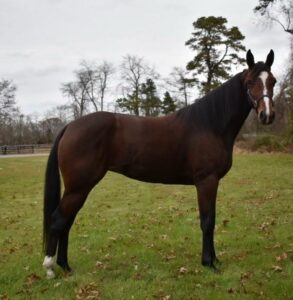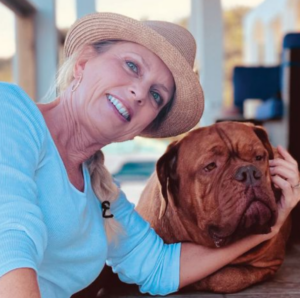While there are many attractive attributes to a career in court reporting, perhaps one of the most intriguing is the opportunity to travel abroad for work. While many of the profession appreciate coming home after an overseas assignment, a lucky few NCRA members have made it their mission to work permanently in other countries. The JCR recently reached out to several NCRA members who have established themselves as working professionals and residents outside of their native countries.
So much bigger than the United States
Since 1979, Susan Anne McIntyre, RPR, CRR, CRC, has had the United Kingdom and Europe serve as the backdrops for her work as a freelance court reporter and captioner. Her work ranges from covering U.S. depositions and international arbitrations to work in the criminal courts, as a television captioner, and providing CART services.
How did the opportunity for you to work outside of the United States come about?
There was an article in the JCR in 1978 by the partners of a London-based reporting firm, George Walpole & Sons, who ran the contract to provide reporting services to the Central Criminal Court (Old Bailey). They were looking for reporters to come over and work as there was a shortage of qualified, high-speed reporters. At this time my colleagues were all pen shorthand writers using Pitman.
What made you want to work outside of the United States?
I was a real Anglophile and the opportunity to work in London was an opportunity too good to pass on.
What was the hardest adjustment you had to make when you moved from the United States?
There were numerous adjustments that had to be made, but leaving my family was the most difficult. I was only 21 when I moved over to London. Some of the less traumatic adjustments were: no shops open on a Sunday, getting used to lunch at 1.00 instead of 12.00 (!), learning the colloquialisms of the language, learning to spell the English way, learning that “pants” and “trousers” were two very different items of clothing, having to flat share and not being able to afford a place of my own – which was the best thing that could have happened ( I made friends that I still have today); and learning to drive on the other side of the car on the other side of the street!
Did you relocate on your own or did you have assistance from a hiring firm?
No, I had no assistance. I did it on my own.
Do you receive benefits such as health insurance, 401K, pension, or are you considered an independent contractor?
I am an independent contractor (self-employed). I work for myself under the name of Ambassador Reporting International. My aim is to let all U.S. agencies know that I’m here and to work with them to provide a professional, high-quality, reliable service to their customers on their behalf.
What has been the best experience in working outside of the United States?
Realizing that the world is much bigger than the United States of America, seeing how other nationalities live and experiencing their cultures, and travelling.
Do you plan to return to the United States to work again?
Unlikely. I have now lived in the U.K. for 38 years – 17 years longer than I lived in the United States. This is my home now.
Will you retire outside of the United States?
Yes.
What tips do you have for someone considering working outside of the United States?
Do it legally. Find out what your wage is likely to be and then what the standard of living is for someone on that wage. Do not expect your standard of living to be what you have in the U.S. Be aware that court reporting in certain countries just doesn’t exist. Be aware that as a U.S. citizen you are still obligated to file a U.S. tax return.
What is your favorite food there?
Curry!
From bustling street scenes to sitting alongside a canal
After falling in love with Amsterdam, Rich Alossi, RPR, relocated from California to the Netherlands and now works as a full-time freelance reporter covering patent litigation, technical matters, arbitration, and the occasional captioning/speech-to-text work. His work takes him throughout Europe and occasionally Asia.
How did the opportunity for you to work outside of the United States come about?
My husband and I visited a friend in Amsterdam in 2013 and completely fell in love with the city, the people, and the quiet yet bustling street scenes that are enabled by the cycling culture. Coming from Los Angeles, it was pure joy to sit alongside a canal and listen to the sounds of bikes zipping past. We loved it so much that the next year we returned with the intention of scoping out neighborhoods to live in. After two years of planning and a huge personal investment, we followed through on our dream.
What made you want to work outside of the United States?
I’ve always wanted to live abroad; it was just a matter of whether my skills would transfer professionally. When we saw an opportunity to make the move, it was a no-brainer. Reporting agencies love using me for jobs in Europe because their clients save on travel fees.
What was the hardest adjustment you had to make when you moved outside of the United States?
First and foremost, I miss my family and friends terribly. Facebook is great for keeping in touch, though. We’re taking time in between working and renovating our apartment to rebuild our routines. The more we travel, the more we realize that having continuity in daily life is more important than we would have expected. Even something as small as having an exact copy of all the personal care products that we use at home, like shampoo and soap, is important. Also, being immersed in another language, I’m finding that I am subconsciously altering my English words and syntax. I’m at a frustrating point of being bad at Dutch and English!
Did you relocate on your own or did you have assistance from a hiring firm?
As freelancers, we made the move completely on our own.
Do you receive benefits such as health insurance, 401K, pension, or are you considered an independent contractor?
As an independent contractor in a socially conscious country, the Netherlands is set up very well with health insurance options and retirement plans for citizens and residents. We have affordable private health insurance, and the market here is well regulated and consumer friendly.
What has been the best experience in working outside of the United States?
I love discovering new cities and planning return trips, and that’s so easy within the European Union’s visa-free Schengen Zone. Sweden has been a surprise favorite. While I think I would have had the ability to see a few of the dozens of cities and countries I’ve been to in the past few years, it would have taken me a lifetime had I not made the move to Europe. In less than two hours from Amsterdam Schiphol Airport, I can be in most destinations in Western Europe.
Do you plan to return to the United States to work again?
I do not currently have any plans to return to the United States to live or work. That said, it’s only a 10-hour flight back to California, so there’s no reason not to visit each year.
Will you retire outside of the United States?
This year we’ll be starting contributions to a Dutch pension, and I’m continuing my intensive language studies. After five years, we will be able to apply for Europe-wide permanent residency. This is for the long haul.
What tips do you have for someone considering working outside of the United States?
My biggest recommendation is to stop comparing things so much to how they are back home, or at least have good humour about it. There will be pros and cons. The grocery store won’t have the products you’ve become accustomed to. You’ll lament the tiny kitchens and strange habits of the locals. But do try to learn the local language; it’ll open doors for you.
What advice do you have for someone searching for work outside of the United States?
Remember that it’s not a vacation. The clients are paying a lot of money for a service, and you must be up to the challenges that travel imposes. What’s your fall back plan if your realtime router gets fried in a puff of smoke as soon as you plug it in on a job in another country? Can you guarantee the job will go forward if your checked baggage is lost or delayed? Will you sleep through your alarm because of jet lag? What if the law firm Wi-Fi isn’t letting you stream offsite? You’ll know the answers to these questions because you’ve planned for them ahead of time.
What is your favorite food there?
Dutch food isn’t known for being too adventurous — lots of potatoes and root vegetables with a little meat — but that doesn’t mean it’s all plain. My favorite Dutch food is the bitterbal, which is a deep-fried breaded ball of gravy that you eat with a beer after work at the local “bruinkroeg,” or brown bar (so named because of the decades of cigarette smoke that have turned the formerly white walls brown). Smoking isn’t allowed inside anymore, thankfully, but the bruinkroegen and their deep-fried delicacies persevere. By the way, a great local brew here is almost always cheaper than bottled water or cola.
Go travel the world
Leah M. Willersdorf is an Australian living just outside of London in the County of Essex. Her location allows her to cover American depositions, arbitrations, caption big-screen events, work courtroom trials and more – throughout the United Kingdom, Europe, Scotland, and Ireland. She is a member of the British Institute of Verbatim Reporters and is currently working on earning her Register Professional Reporter certification from NCRA.
How long have you worked there? How did the opportunity for you to work outside of Australia come about? What made you want to work outside of your home nation?
Well, there’s a story. For those who don’t know it, I trained in Brisbane, Australia, in 1990/1991 at university, having wanted to be a court reporter since watching LA Law in my mid-teens and wondering what the really bored-looking woman was doing as she sat in front of the judge sort of tapping her fingers. I was able to do high school work experience shadowing a real-life reporter, so I first “touched” a steno machine when I was 16. I went on to university, graduated at the end of the two-year course (though I almost threw the machine out the window when I couldn’t get 80 wpm), which began with 90 students and ended up with just 10. Subjects included written English, spoken English, law, economics, management, and of course the machine.
In 1994 I said to my mum that either I must go travel the world or I stay in Australia and achieve what we call the Great Aussie Dream – buy a big plot of land and build your dream house. I’m sure with some trepidation, my mum said, “Do what I never did and travel the world.” My brother was also here at the time, so that did help.
I applied for my two-year Working Holiday Visa and was London-bound in March 1995 at the ripe old age of 22. Twenty-two years later I’m still on that working holiday…and loving it. Not only do I not regret a single day – not even the bad ones – but I look around me constantly and realize how very lucky I am to be living my dream.
What was the hardest adjustment you had to make when you moved outside Australia?
Two main things come to mind immediately. In Adelaide at the Courts Administration Authority, where I began my career, we used to have three reporters on a team in court. We would usually do 20-minute turns and then be transcribing our turns when not in court, so that the final transcript was ready at the end of the day for the parties (after they had filled in a requisition form, of course). On my first day at Inner London Crown Court, I asked, “So what time will someone be in to take me off?” (Weird jargon we reporters use, isn’t it?) Well, you can imagine the look on my face when I was told that I’m in this courtroom all day on my own! Needless to say, back in those days I quickly had to build up my stamina, and I’m glad I did; some assignments I’ve done sit crazy hours!
The second thing I had to adjust to was not only the currency exchange rate (don’t convert when you start working in another country) but getting paid monthly, and a different amount each month, whereas back home it was fortnightly and the same amount each fortnight because it was a governmental position. Nowadays I think I would struggle going back to fortnightly!
Did you relocate on your own or did you have assistance from a hiring firm:
No, I received no assistance from a firm; however, I did have interviews/exams lined up for when I first arrived in London.
Do you receive benefits such as health insurance, 401K, pension, or are you considered an independent contractor?
As a self-employed freelancer, all those types of things are my own responsibility now; which is another thing I kind of miss about my time of working back home as well. We had a thing called Leave Loading where you would actually get extra money when you took your statutory leave.
What has been the best experience in working outside of Australia?
The opportunity to travel the world with my quirky non-KWERTY, and that includes around the state of South Australia. I could be in a London black taxi going past Big Ben or Buckingham Palace, and I still have to pinch myself that I am living in London. Being Australian, when I travel abroad I am fortunate enough to get stamps in my passport for every time I enter/leave a country; I will be able to look back on all of my travels just in those little books, which fill up quite quickly!
Also, I have had the opportunity to work alongside a couple of great expat American reporters particularly over the last couple of years. It was an absolute pleasure to be able to do double- and triple-tracked depositions in Stockholm (twice) and The Hague with Rich Alossi. This can be such an isolating profession sometimes, but when you get to work with other reporters it’s just such a wonderful experience.
Do you plan to return to Australia to work again?
One day I will. I would love to go back to Adelaide and see all the gold-standard reporters who inspired me to always be the best I can be and to always have affection for that weird-looking machine.
What tips do you have for someone considering working outside of Australia?
First, make sure you have the necessary work visas/permits to allow you to work in your country of choice, whether it be for a week or for a year. To this day, I still have to show my documents, and I always will have to, I imagine. The rest of the world does not have the reporter population which America has, and to go in and not have the required documents yet still work is taking work away from the locals. Also, over here in Europe, and I know in Australia and Asia as well, realtime (in whatever sphere of the profession) is in high demand. If you can provide very clean and readable realtime, you practically have a foot in the door. Do what you love and love what you do!
What advice do you have for someone searching for work outside of Australia?
Make it known to the agencies who you work with that you are willing and able (and have a passport with a good few months’ validity) to travel for work. You never know, they may send you to a city/country which you fall in love with and then decide you want to move there. Or, better still, you could fall in love with a local. I fell in love with a Parisian and now his Paris is one of my favourite cities in the world…though my French could do with a lot of help!
What is your favorite food there?
It’s not so much a food, but Twinings English Breakfast tea – I couldn’t start my day without it! (And the British version tastes so much nicer than the Aussie version!)
My wonderful home in Asia
After scanning the JCR job ads for interesting opportunities, Mary Allred, RPR, from Alberta, Canada, relocated to Japan in 2015. As a reporter for Planet Depos, she provides realtime services in the areas of depositions and arbitrations not only in Japan, but in Korea, Taiwan, Hong Kong, Guam, Singapore, and Macao.
How did the opportunity for you to work outside of Canada come about?
I was living and working in Calgary, Alberta. The posting for Asia was advertised in the JCR, and when I saw it, I sent an email with an inquiry for details. The rest fell into place from there.
What made you want to work outside of Canada?
I have always had the travel bug, and I had obtained the RPR certification with the intention of traveling and working around the world, including in the United States.
What was the hardest adjustment you had to make when you moved outside of Canada?
I had to learn quickly how to handle the heat and humidity. Not a single piece of clothing I brought with me is still in rotation in my wardrobe. Also, there was a drastic but pleasant lifestyle change going from a car society to a train society. The public transport system in Japan is famous for a reason. It can take you anywhere! It also requires a lot of walking. I’ve made more than my fair share of train mistakes and ended up in strange places, but each one was its own adventure.
I was surprised that the language barrier was not as much of a challenge as I thought it would be. Everyone has probably heard the saying that most of communication is non-verbal, and I have definitely learned this is true. I was lucky as well that several phone apps are available that can take a photo and translate text to semi-readable English. I have managed to avoid washing my hair with laundry detergent for two years due to their assistance!
Did you relocate on your own or did you have assistance from a hiring firm?
The firm took care of all relocation details. I moved to Japan sight unseen and with only the knowledge I accumulated from long forgotten school information and old samurai movies. Housing and flights are covered by my firm to help ease the transition.
Do you receive benefits such as health insurance, 401K, pension, or are you considered an independent contractor?
As a resident of Japan, my health insurance is covered under the National Health Service, which is included in taxes.
What has been the best experience in working outside of Canada?
It has been such an adventure living and working in Asia. I have worked through many earthquakes and a few typhoons. I have loved the ability to experience other cultures much more in depth than is possible during a short trip. My work takes me all over Asia, and I have been able to see shrines and temples, castles and skyscrapers in some of the world’s most beautiful places.
Do you plan to return to Canada to work again?
At this time I have no plans to leave my wonderful home in Asia.
Will you retire outside of Canada?
I’m sure someday I will return to my home in Canada, probably around the same time I finally start to enjoy the heat!
What tips do you have for someone considering working outside of Canada?
Have patience! Some days even the simplest thing can turn into an ordeal as you learn different ways to do things. Do not ever be afraid to ask for help. The language barrier can be a challenge, but being polite and understanding will make the people helping you more willing to go the extra mile to make your job easier.
What advice do you have for someone searching for work outside of Canada?
The JCR job bank was an excellent resource for me. Once you are there, there are amazing tools nowadays for meeting people and trying new things. Sign up for Meetup.com and join local Facebook groups, and in no time you’ll build a network of friends making your time in your adopted country the most amazing experience possible.
What is your favorite food there?
Impossible to list it all! Asian food is amazing. In Japan my favorites are Japanese curry and tonkotsu ramen. In Taiwan I always look for a 50Lan tea shop and get Yakult lemonade or a bubble tea. In Korea, be prepared to burn all your taste buds off with some spicy fried chicken and in Hong Kong get the Michelin Hong Kong Street Food Guide and try everything!
Off to Africa straight out of school
NCRA member Shane Madill, RPR, RMR, has been based in the Netherlands for nearly a decade. From there, his major job is providing realtime court work for the Special Tribunal for Lebanon. He has also worked at the International Criminal Tribunal for the former Yugoslavia, the International Criminal Court, and the Special Court for Sierra Leone in Freetown, Sierra, Leone. Every now and then he also does some court and arbitration work in the courts in Singapore. He also occasionally works in Asia.
How did the opportunity for you to work outside of Canada come about?
When I was a student at NAIT in my second year, my teacher used to work at the SCSL (Special Court for Sierra Leone). Knowing that I wanted to get out of Canada and try something new, she encouraged me to apply. At first I didn’t get accepted, and I was pretty disappointed. But then two months later they e-mailed me asking me if I was still interested and off I went to Africa fresh out of school for my first job.
What made you want to work outside of Canada?
The opportunity to work outside of Canada was one of the principal reasons why I chose to get into court reporting. In NAIT’s brochure, they advertised students who had gone on to work in Australia and Europe, and that sounded right up my alley. I knew from high school that outside of Canada is where I wanted to go.
What was the hardest adjustment you had to make when you moved outside of Canada?
Being fresh out of school and going straight into an international environment, there was a steep learning curve. I was extremely fortunate to have the chance to work with some absolutely amazing reporters, who taught me how to adjust my writing style for foreign names and places that I’d never heard of and other ways to continue to shorten my writing. Also, learning how to deal with thick accents, different speaking styles, and new phrases had to quickly become second nature.
Did you relocate on your own, or did you have assistance from a hiring firm?
When I left Canada to Sierra Leone, I was 20. I didn’t have anything other than a suitcase, so there wasn’t much relocating to do. The people from the SCSL helped find me a place to stay to start off with, and I moved around down there eventually on my own.
Moving to The Hague in the Netherlands from Freetown in Sierra Leone was much the same experience. The firm I work with had an apartment at that time that I could stay in until I managed to find my own flat.
Do you receive benefits such as health insurance, 401K, pension, or are you considered an independent contractor?
I receive no benefits and am treated by my firm as a contractor. I receive a living allowance and a food allowance.
What has been the best experience in working outside of Canada?
Being able to develop myself professionally and meeting other court reporters from all over. I don’t know where I would be without a lot of the help and mentoring I received from my colleagues from different parts of Canada and the world. I know you can develop yourself professionally anywhere you are based, but working in different countries and having to adjust my writing style and my ears to different names and accents and having to quickly adjust to different cases focused in different continents and regions of the world has helped me to believe in my ability to do my job accurately in almost any situation and provide a product that the client will be happy with, which always leaves me with a smile because I feel like I accomplish something every day.
Do you plan to return to Canada to work again?
Not in the near future, or hopefully distant. I’m pretty happy overseas right now.
Will you retire outside of Canada?
Yes, something about the south coast of France has always appealed to me. I’m hoping to somehow manage to get there!
What tips do you have for someone considering working outside of Canada?
Research the country or city you’re thinking of moving to and the culture, and be prepared for some inevitable cultural misunderstandings to come about. I’d also advise anyone moving abroad to also look into how the income tax in that country works, because it can get tricky!
What advice do you have for someone searching for work outside of Canada?
Keep trying and searching. It can be pretty hard to get the overseas job, but once you get in and get known in the circuit, the rewards are well worth the struggle and you may never want to go back.
What is your favorite food there?
Kibbeling. It’s a snack consisting of battered chunks of fish, commonly served with a mayonnaise-based garlic sauce or tartar sauce. My personal preference is the mayonnaise-based garlic sauce.




